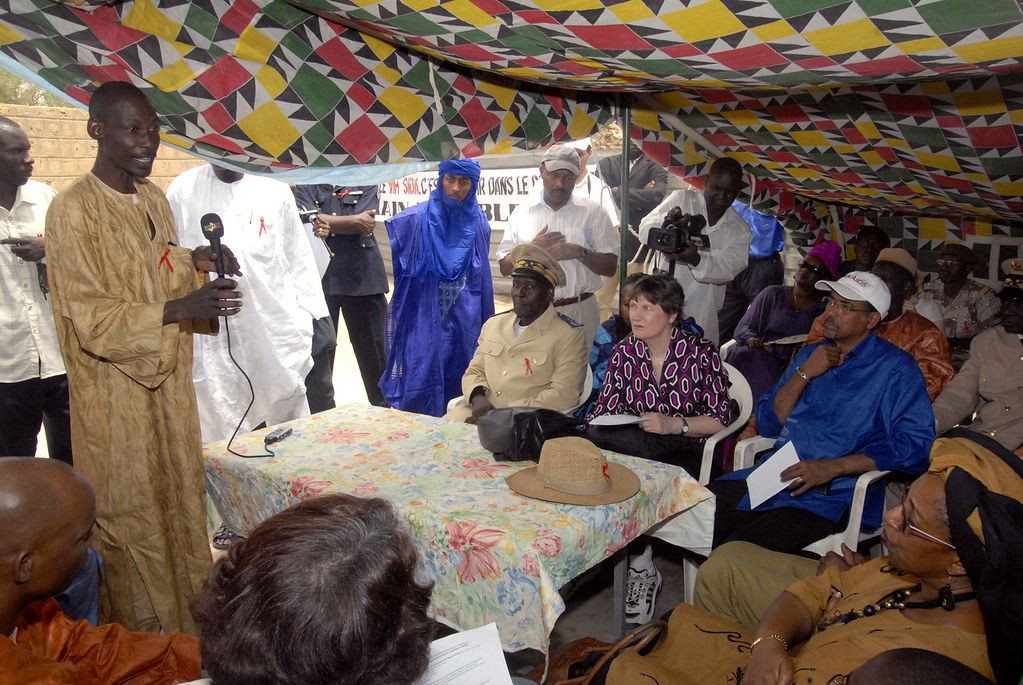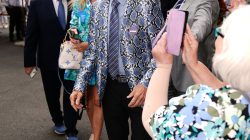CIVICUS speaks with two representatives of Malian civil society – Modibo Diakite, president of the Association for the Socio-Economic and Technological Development of Youth (ADEJ-Mali), and Fakassi Fofana, coordinator of a partner humanitarian organisation – about the likely consequences of a draft law to tax civil society organisations (CSOs).
Mali’s National Transitional Council – a military junta – has been
in power
since a 2020 coup and has repeatedly resisted pressure for a return to democracy. It recently
dissolved
all political parties and banned political gatherings. The junta is currently considering a bill to impose a mandatory 10 per cent levy on funds received by CSOs. This draft law forms part of a broader context of increasing restrictions on civic and democratic space.
What would be the impact of the draft law on the taxation of associations?
If passed, this law could have a significant impact on civic space. It would require associations and foundations to
pay 10 per cent of their budget
for operations and projects to the state, posing a serious threat to the survival of organisations that already work with very limited financial resources.
Now we have to explain to our partners that part of the funds allocated to our projects will go to the state, with no direct impact on the implementation of our activities, and it will be very difficult to convince them to keep supporting our actions under these conditions. Where the state is unable to intervene – such as in the areas of education, electricity, health and water – it’s CSOs that try to meet public needs through their projects.
We are currently facing major difficulties due to the gradual
withdrawal of donors
, most recently USAID. These successive withdrawals have had a significant impact on our operations, and this new law would only exacerbate an already critical situation.
In the absence of external funding, most organisations rely on grants from partners and membership fees, which are difficult to raise due to the economic crisis, job losses and growing insecurity. These funds help us pay existing taxes, social security contributions and rent. If we are also required to pay an additional levy, this will jeopardise many projects. Many organisations have already closed, and those that are still holding on are doing so in extremely precarious conditions.
How has civil society responded to this initiative?
Some organisations and several umbrella platforms are now more or less aligned with the military regime’s positions and therefore are not reacting negatively to the draft laws.
But truly independent CSOs are concerned about the consequences and are asking to be consulted by the government, even though we know our proposals are likely to be ignored. We are also focusing on communication and mobilisation through the media and international advocacy to make partners aware of the impact this law could have on organisations, particularly those providing essential services in areas where the state is absent.
We must continue to engage in dialogue, raise awareness and work together to prevent other donors withdrawing. The state is also facing financial constraints, and we hope that it will come up with an effective strategy to mobilise the necessary resources.
How do you respond to the government’s concerns about CSO activities in conflict areas?
To justify tightening controls on CSOs, the government has made serious accusations, insinuating that some CSOs are involved in financing terrorism. But the reality is quite different.
Humanitarian organisations working in areas controlled by armed groups sometimes have to negotiate access to protect their staff. This is not support for terrorism, but a matter of safety and survival. Despite efforts to provide security, many CSOs are attacked and endangered, and ways should be found to secure their operations rather than discourage them by associating them with terrorist groups.
What other restrictions has the government placed on civil society?
Repressive measures against critical voices are increasing. The most striking example is the
kidnapping
of the president of the Forum of Civil Society Organisations, Alou Badra Sacko, which sends out a very worrying signal. Today, any voice that denounces the government’s authoritarian actions is perceived as an enemy. Mr Sacko was abducted for criticising government decisions, including tax measures affecting poor people, and has been held by state security for over a month.
Journalists are also being targeted and the media is facing increasing restrictions, which constitute serious violations of fundamental freedoms and a clear civic space restriction.
In his recent policy statement to members of the National Transitional Council, the prime minister
announced a draft law
to further regulate CSOs, which is also a cause for concern.
In addition, the government recently suspended all political activities. Political groups and civil society are calling for a return to constitutional order and the revision or repeal of the law that abolished the charter on political parties and the decision to dissolve, an action that runs counter to the constitution adopted by referendum during the transition.
Although elections have been promised, notably in the roadmap the prime minister presented’, there is a clear lack of political will to organise them. The transition, initially planned to last 18 months, has been postponed several times and no real progress has been made towards holding credible elections. It’s now expected to take between three and five years. Many civil society members are calling for mobilisation to demand transparent and fair elections to end this situation.
How do people view the transitional government and its refusal to hold elections?
People are divided, with a marginal fringe of those with political connections who benefit from the transitional government and favour the status quo and the postponement of elections, and a majority, including various political parties and the main CSOs, who believe democratic elections should be held as soon as possible.
Mali still has a relatively high illiteracy rate, and while most educated people are clearly aware of the situation, others find it difficult to understand the political issues at stake. But overall, there has been a shift over time, and many who initially supported the transitional authorities are now calling for elections.
How can the international community support a return to constitutional rule?
The Malian authorities have pursued a strategy of gradual disengagement from the international community, starting with the withdrawal of the United Nations Stabilisation Mission in Mali in December 2023. After 10 years, this mission was perceived as ineffective on the ground and was widely rejected by the public, who felt humiliated by the lack of tangible results.
This rupture was followed by the withdrawal of French and European forces and also by Mali’s decision to leave the
Economic Community of West African States
, which led to the creation in 2023 of the
Alliance of Sahel States
by Burkina Faso, Mali and Niger. This new organisation has the stated aim of bring together the three military-led countries to counter regional security threats.
Unlike
Burkina Faso
and
Niger
, however, Mali has maintained an institutional facade: the constitution has not been suspended, national conferences have been organised and a referendum was held in 2023. This confirmed people’s commitment to democracy, secularism and multiparty politics.
Today, the central issue is the return to constitutional order through international advocacy. The international community must rethink its approach, because it’s no longer a question of condemning or sanctioning, but of supporting local dynamics, particularly those led by civil society to document human rights violations.
Civil society remains committed and clear-headed but needs strategic and technical support to keep raising awareness, mobilising and proposing solutions. It is also important to provide access to legal services, particularly lawyers for people being prosecuted. Despite the difficult context, the democratic ideal is alive and well in Mali, and no one can govern for long without legitimate institutions and credible elections.
GET IN TOUCH
Website
Facebook
LinkedIn
READ MORE
Mali heads in the wrong direction
CIVICUS Lens 13.May.2024
Mali: ‘Civil society demands a return to constitutional order through free elections’
CIVICUS Lens | Anonymous interview 10.May.2024
Mali: ‘Real or perceived repression has created a climate of self-censorship among people’
CIVICUS Lens | Interview with Nafissatou Maiga 14.Feb.2024
Provided by SyndiGate Media Inc. (
Syndigate.info
).







